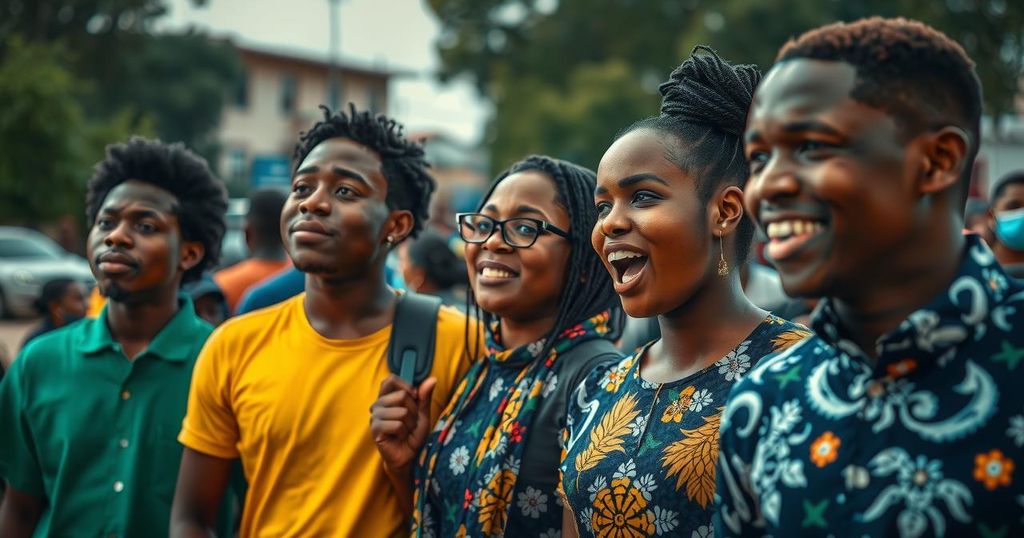Young Ghanaians Seek Change Through Presidential Vote Amid Limited Options
As Ghana prepares for its presidential election, young voters see it as an opportunity to escape economic hardships, yet their options remain limited with a clear focus on two leading candidates. Both Vice President Mahamudu Bawumia and former President John Mahama offer contrasting visions for the country’s future amidst rising economic despair and concerns over election transparency.
Young Ghanaians view the presidential election as a potential escape from their current hardships, yet they find themselves with limited options as they prepare to cast their votes on Saturday. As the country navigates its most severe cost-of-living crisis in recent history, many young voters, including first-time voter Joseph Antwi, express disappointment with the outgoing government’s performance, particularly its failure to deliver on promises made during election campaigns. Despite twelve candidates vying for the presidency, the contest predominantly centers on a two-horse race between Vice President Mahamudu Bawumia and former President John Mahama.
In the lead-up to elections, both leading candidates have made fervent appeals to voters at their final rallies. Vice President Mahamudu Bawumia, representing the ruling party, the New Patriotic Party (NPP), advocates for continuity, assuring citizens that he will enhance measures to stabilize the economy. Conversely, John Mahama of the National Democratic Congress (NDC) proposes a sweeping “reset” of the nation’s governance and infrastructure to address the current economic malaise.
The atmosphere in Accra is charged with political activity, as public rallies abound and campaign music fills the air. Alongside economic strife, illegal mining activities have sparked protests, highlighting environmental concerns and the desperation for improved living conditions among the populace. Voter expectations are sharply focused on candidates who promise to tackle these pressing issues, notably unemployment and economic hardship.
In the context of emerging allegations from opposition parties regarding potential electoral manipulation, the Ghanaian electoral commission emphasizes its commitment to transparency and fairness in conducting the elections. The commission’s chairperson, Jean Mensa, underscores the importance of inclusivity in ensuring credible electoral processes. As Ghana approaches this crucial moment of democratic engagement, the youth remain hopeful for a candidate who can truly advocate for their interests and better their circumstances.
The article discusses the impending presidential election in Ghana, particularly focusing on the sentiments of young voters who feel economically disenfranchised. Ghana, known for its vibrant democracy, is experiencing a significant economic crisis characterized by high inflation, a weakened currency, and issues related to public debt. With twelve candidates in the race, the election is showing signs of being a contest primarily between the ruling party’s candidate and the main opposition leader, reflecting the historical trend of two-party competition in Ghanaian politics. The young electorate, comprised of first-time voters, is eager for change, especially against a backdrop of unmet electoral promises and pressing socio-economic challenges.
In conclusion, the upcoming presidential election in Ghana is a critical juncture for young voters amid significant economic challenges. While the electorate is enthusiastic about exercising their democratic rights, they are also acutely aware of the limitations of their choices. With the electoral landscape dominated by two major candidates, the hopes of young Ghanaians for substantial changes reflect their desire for a leader who can effectively address their pressing economic concerns and fulfill campaign promises. As the election approaches, the integrity of the electoral process and the candidates’ commitments to the youth will be pivotal in shaping the future of Ghana.
Original Source: apnews.com




Post Comment